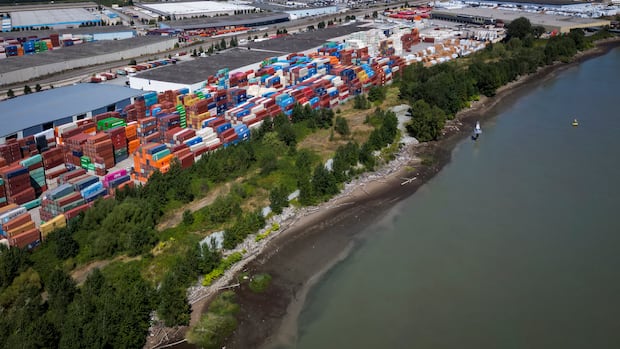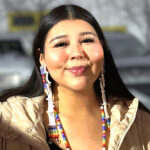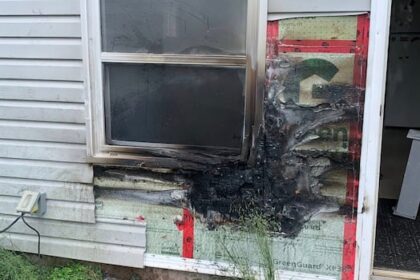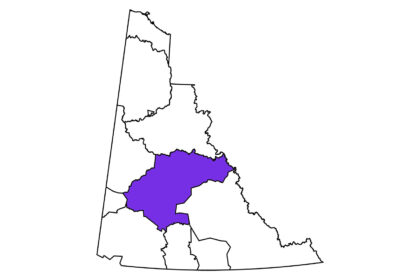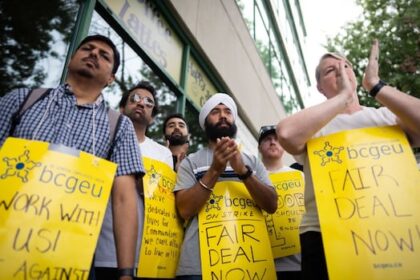Indigenous A landmark case in British Columbia has put a spotlight on Aboriginal title, and how it fits with federal and provincial laws. But what does Aboriginal title mean?Multiple jurisdictions can coexist, says lawyerCBC News · Posted: Oct 24, 2025 7:18 PM EDT | Last Updated: 3 hours agoListen to this articleEstimated 3 minutesIndustrial land between No. 5 Road and No. 8 Road along the north side of the Fraser River in Richmond, B.C, is pictured Aug. 12. Certain properties on Lulu Island are the subject of a court decision that granted Aboriginal title to Quw’utsun (Cowichan) Nation. (Ben Nelms/CBC)A landmark case in British Columbia has put a spotlight on Aboriginal title, and how it fits with federal and provincial laws.In early August, a B.C. Supreme Court judge ruled Quw’utsun Nation had fishing rights in the Fraser River, and Aboriginal title to 7.5 square kilometers in the City of Richmond – where privately owned homes are built on top of a historic village site.Musqueam Indian Band and Tsawwassen First Nation, defendants in the case along with Canada and B.C., argued they have traditional ties to the area as well. They will appeal the decision, along with the provincial and federal government.But what does Aboriginal title mean, and how does it affect things like fee simple ownership, also known as private property?Aboriginal title lawyer Ryan Beaton said Aboriginal title gives the title holders the right to decide how the land will be used and economic benefits from the land.Beaton said multiple jurisdictions can coexist.”So you can have fee simple land as a fee simple land owner — you have your property and a house — while the province still has jurisdiction,” said Beaton.“It seems to my mind, and I think to most observers, that Aboriginal title would be a third order of lawmaking power, where the title holders would make laws over the Aboriginal title land alongside provincial and federal law.”But that’s still unclear.“So far the courts, especially the Supreme Court of Canada, has been hesitant to explicitly say Aboriginal title comes with law-making power,” said Beaton.Uncertainty historicalKhelsilem, a former elected councilor for Squamish Nation, said this lack of clarity goes back to colonial contact. “The uncertainty has always existed,” Khelsilem told CBC Radio’s The Early Edition on Wednesday.“It’s existed for 150 years. The courts have repeatedly said the Crown needs to behave honourably and it needs to negotiate in order to resolve these things and it’s actually because the government has refused to do that work that we’re in the uncertainty that we’re in now.”The City of Richmond has invited registered owners of certain properties on Lulu Island to a meeting Oct. 28 to share more information about the ongoing litigation. Lawyer Tim Dickson said the Quw’utsun Nation has said in court proceedings it is not looking to repossess privately owned homes.“They’ve only sought to get land back from the government in this area,” said Dickson.Dickson said in no cases of Aboriginal title brought forward to date in Canada have Indigenous people “sought to kick individual landholders off of their lands.”
Wednesday, 4 Feb 2026
Canada – The Illusion
Search
Have an existing account?
Sign In
© 2022 Foxiz News Network. Ruby Design Company. All Rights Reserved.
You May also Like
- More News:
- history
- Standing Bear Network
- John Gonzalez
- ᐊᔭᐦᑊ ayahp — It happened
- Creation
- Beneath the Water
- Olympic gold medal
- Jim Thorpe
- type O blood
- the bringer of life
- Raven
- Wás’agi
- NoiseCat
- 'Sugarcane'
- The rivers still sing
- ᑲᓂᐸᐏᐟ ᒪᐢᑿ
- ᐅᑳᐤ okâw — We remember
- ᐊᓂᓈᐯᐃᐧᐣ aninâpêwin — Truth
- This is what it means to be human.
- Nokoma


